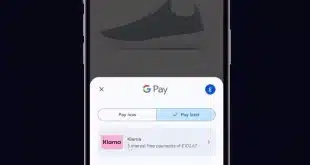The word “regulation” generates little enthusiasm in the merchant-acquiring industry, but it’s more palatable when “self” is the operative adjective rather than “government.” Thus, the Electronic Transactions Association is pushing its new Self-Regulation Program for acquirers, independent sales organizations, and payment facilitators.
Launched early this month, the voluntary program requires applicant payments firms to attest that they follow the ETA’s guidelines for their particular industry sector. Attestation involves more than quickly checking off boxes on a short form, according to Amy Zirkle, vice president of industry affairs at the 500-member trade group based in Washington, D.C. In some cases, the attestations can run as long as 60 or more pages.

“It’s not the SAT, but it is not a three-second thing,” Zirkle tells Digital Transactions News. “It’s a robust program.”
Plus, applicants have to pay a volume-based fee. The ETA is running a special, so to speak, of $500 until year’s end. In 2019, fees for ETA members will rise to $750 for processors with fewer than 10 million annual transactions; $1,500 for firms with 10 million to 100 million transactions, and $3,000 for those with more than 100 million transactions. Non-ETA processors also can participate, but will pay higher rates.
If the ETA’s reviewers approve an attestation, the participant can display a logo that tells merchants, prospective merchants, and others in the financial and payments industry that it adheres to the ETA’s voluntary guidelines for acquirers, ISOs, and payment facilitators. Participating companies also are eligible for invitations to special presentations at ETA events, and discounts on various ETA educational programs and services.
The guidelines are largely aimed at improving merchant underwriting and reducing fraud risk. “We’re really hopeful that this demonstrates a very concrete step towards addressing fraud and minimizing fraud,” says Zirkle. She adds that 17 companies have applied for participation since the ETA announced the program Sept. 4.
The threat of government regulation has hung over the industry for years, especially when fraudulent telemarketers and other merchants are hauled into court. The Federal Trade Commission has sued a number of processors for failing to intervene when their client merchants have generated large numbers of consumer complaints and chargebacks.
The ETA has discussed the new program with the FTC and other regulators, according to Zirkle.
The trade group issued its first guidelines for ISOs in 2014 and has updated them twice since then, most recently in February. Guidelines for acquirers also debuted in 2014 and also have been updated twice.
The ETA published its first payment facilitator guidelines in 2016 and issued an update on Thursday. The revision makes applicable to payment facilitators a new rule from the U.S. Treasury Department’s Financial Crimes Enforcement Network (FinCEN) regarding identification of the beneficial owners of 25% or more of a financial company, according to Zirkle.
The other change reflects higher thresholds from Mastercard Inc. and Visa Inc. regarding when a merchant served by a payment facilitator generates enough volume that it should have its own merchant account. The original threshold was $100,000 in annual volume; it’s now $1 million.






